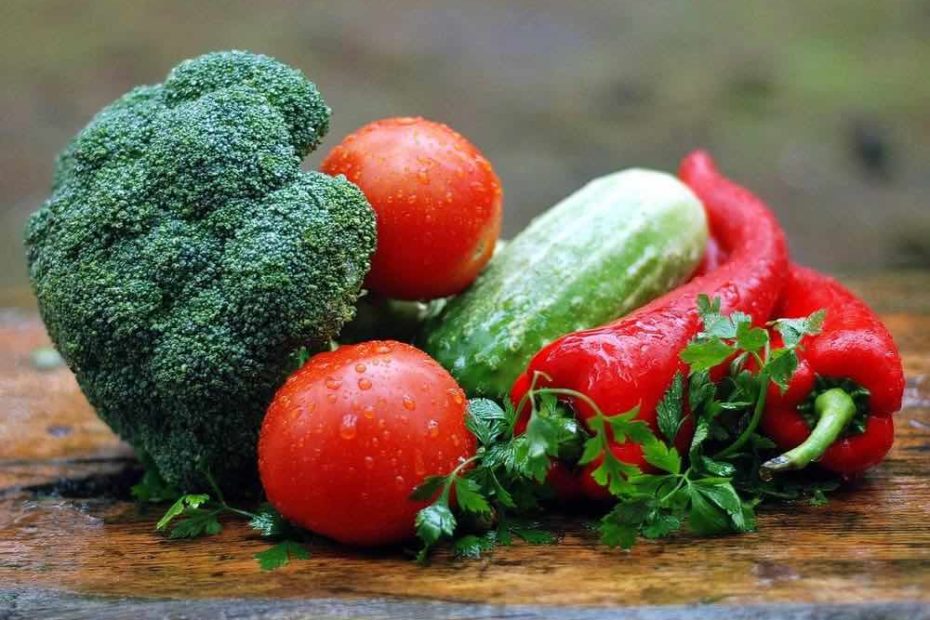Another trend to add to the list of numerous diets already out there is the raw food vegetarian diet. If you haven’t heard of it then you have guessed right- it means that the only food consumed is predominantly or exclusively uncooked and unprocessed raw food. This means the main components of the diet are fruits, vegetables, nuts and seeds. The raw food list removes anything refined, cooked or baked, so that’s no more birthday cakes or bread!
Raw food diets have been around for years, since the 19th century, but recently only come to light. The raw food diet has almost become fashionable as celebrities and high-profile chefs have begun to embrace them, numerous raw foods cookbooks have been published and restaurants catering to the raw diets trend.
Can I cook anything at all?
Good question. The only cooking allowed in a raw food diet is a food dehydrator. This is because it isn’t technically cooking foods, it is simply a way of removing moisture from foods, such as dried fruits, in the most natural way possible.
There are obviously different variations to a raw food diet depending on how strict an individual wants to be with it, but the ONE rule that seems to be agreed on is that you cannot eat foods that have been heated above 118 degrees Fahrenheit / 48 degrees Celsius. Who fancies a raw egg for breakfast?
What are the benefits?
Raw food diets are intended by the adherents to achieve better health and to prevent diseases such as cancer and CVD. Yes, they may be better for you in the fact that all of the processed, high-fat, sugar foods and beverages are removed from the diet, but there is not a large amount of evidence about the health benefits out there that will persuade you to take it up tomorrow.
It is believed that eating food raw preserves its nutritional contents. For instance, cooking red cabbage reduces its Vitamin C and antioxidant content (1). So you may be getting nutrients that you would have missed out on otherwise if you decided to cook the food. Steaming is the best way to preserve vitamins and nutrients in food (1) and in general, high heat cooking methods (like boiling) should be avoided, especially in the case of cruciferous vegetables, broccoli, cabbages and kale. This theory has been around for quite a while – you probably remember your mum telling you to eat your carrots and tomatoes raw to get most of the nutrients?
It is also thought that digestion of food improves when it is consumed raw, because when enzymes are heated they are damaged, unravelling and changing shape. However, this is a natural process during digestion, because enzymes typically denature in the acidic environment of the stomach anyway (2). So there isn’t much benefit regarding your digestion. In fact, cooking and heating some foods can actually make them more digestible, such as in the case of kale, broccoli, cabbage, cauliflower and sprouts. Also for foods rich in beta-carotenes – those orange foods such as squash, sweet potato, carrots and tomatoes – the cooking process helps to release nutrients and make them more absorbable. So, those with pre-existing digestive problems, such as IBS, will benefit from cooked food.
There are claims that those who follow a raw food diet have lower levels of inflammation, increased energy and lower blood pressure. Some people even report that their skin clears up — wow! Undoubtedly, people tend to lose body fat but is this really a surprise? Not really. You aren’t going to be eating any of those sugary snacks and foods anymore, and your diet will naturally become very restricted.
So, are there any risks and disadvantages?
The nutrient content of some seeds, nuts and legumes can be increased using certain preparation methods such as heat, soaking, fermentation, germination or malting. Can’t do any of those on the raw food diet though, I can tell you that.
Researchers have found that a raw food diet is linked to low bone mass, vitamin D deficiency, osteoporosis and increased risk of fractures (3). Others have found that those following a raw food diet have protein, calcium and B12 deficiencies (4). Due to the strict restrictions of the nature of this diet, severe cases can be associated with amenorrhea, teeth erosion and unhealthy eating habits.
What do you recommend then?
A combination of raw and cooked food in the diet is preferable, and at RYG we incorporate such a large variety of recipes and meal choices that you will never be stuck for ideas. Raw foods are better to eat in the summer as they are more cooling on the body, while cooked foods are warming. Think of those delicious summer salads and the hearty stews on a winter evening. Following a healthy and balanced diet and lifestyle is the way forward to make sure you are getting all of the essential vitamins and minerals.
References
1. Xu F, Zheng Y, Yang Z, Cao S, Shao X, Wang H. Domestic cooking methods affect the nutritional quality of red cabbage. Food Chemistry. 2014Oct15;161:162–7. doi:10.1016/j.foodchem.2014.04.025. Available from: https://pubmed.ncbi.nlm.nih.gov/24837935/
2. Berg JM, Tymoczko JL, Stryer L. 23.1.1. The Digestion and Absorption of Dietary Proteins. In: Biochemistry [Internet]. 5th ed. New York, New York: W. H. Freeman and Company; 2002 [cited 2020Jun]. Available from: https://www.ncbi.nlm.nih.gov/books/NBK22600/
3. Fontana L, Shew JL, Holloszy JO, Villareal DT. Low Bone Mass in Subjects on a Long-term Raw Vegetarian Diet. Archives of Internal Medicine. 2005Mar28;165(6):684–9. doi:10.1001/archinte.165.6.684. Available from: https://pubmed.ncbi.nlm.nih.gov/15795346/
4. Koebnick C, Garcia AL, Dagnelie PC, Strassner C, Lindemans J, Katz N, et al. Long-Term Consumption of a Raw Food Diet Is Associated with Favorable Serum LDL Cholesterol and Triglycerides but Also with Elevated Plasma Homocysteine and Low Serum HDL Cholesterol in Humans. The Journal of Nutrition. 2005Oct;135(10):2372–8. doi:10.1093/jn/135.10.2372. Available from: https://pubmed.ncbi.nlm.nih.gov/16177198/
